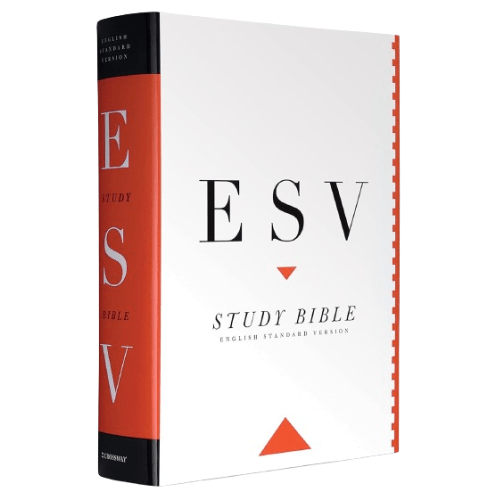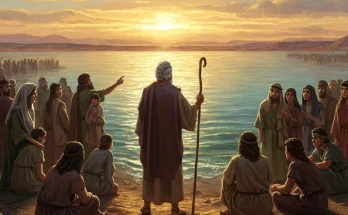What if God placed us in this moment for a specific purpose? In Esther Chapter Four, we see a young queen face that very question. With the Jewish people facing annihilation, Mordecai urges Esther to act. But stepping forward could cost her life.
Fear and uncertainty threaten to paralyze her, yet Mordecai’s words challenge her thinking: “Who knows but that you have come to your royal position for such a time as this?” This pivotal moment in Esther’s life teaches us about courage, faith, and divine timing.
Sometimes, we find ourselves in situations where doing the right thing feels risky. Esther’s story reminds us that faith requires action. Her decision to fast and seek God’s guidance before approaching the king shows us the power of surrender and trust.
Esther Chapter Four is more than history; it’s a challenge to trust God’s purpose in our lives. Are we willing to step forward when the time comes? Let’s explore this chapter and uncover how God calls His people to act in crucial moments.
The ESV Study Bible
The ESV Study Bible was designed to help us understand the Bible in a deeper way. Created by a diverse team of 95 leading Bible scholars and teachers, from 9 countries, nearly 20 denominations, and 50 seminaries, colleges, and universities.
Mordecai’s Public Mourning (Esther 4:1-3)
- Mordecai tears his clothes, wears sackcloth, and mourns loudly in the city.
- The Jewish people across the provinces fast, weep, and lament over the king’s decree.
- No one in sackcloth is allowed inside the king’s gate.
Esther’s Concern and Inquiry (Esther 4:4-6)
- Esther hears of Mordecai’s distress and sends him clothes, but he refuses them.
- She sends Hathak, a trusted eunuch, to learn why Mordecai is mourning.
Mordecai’s Plea for Esther’s Help (Esther 4:7-9)
- Mordecai informs Hathak of Haman’s plan to destroy the Jews and the large sum of money involved.
- He sends a copy of the decree to Esther, urging her to beg the king for mercy.
Esther’s Fear of the King’s Law (Esther 4:10-12)
- Esther reminds Mordecai that approaching the king without being summoned could mean death.
- The king has not called for her in thirty days.
Mordecai’s Challenge to Esther (Esther 4:13-14)
- Mordecai warns Esther that silence will not save her.
- He declares that deliverance will come from another source if she remains silent.
- Mordecai challenges her: “Who knows but that you have come to your royal position for such a time as this?”
Esther’s Decision and Call to Fast (Esther 4:15-17)
- Esther requests that all the Jews in Susa fast for three days.
- She and her attendants will also fast.
- She resolves, “If I perish, I perish.”
- Mordecai follows through with her request.
This chapter highlights a defining moment in Esther’s journey—one that calls for courage, faith, and trust in God’s timing.
Final Thoughts on Esther Chapter Four
Esther Chapter Four challenges us to trust God’s purpose, even when fear threatens to hold us back. Esther faced an impossible choice—risk her life or remain silent. Yet, through fasting and faith, she found the strength to act.
Like Esther, we may face moments where obedience feels risky. However, God’s timing is always perfect. He places us where we need to be for His greater plan. Mordecai’s words remind us that God’s deliverance will come, but we must choose whether to be part of it.
Let’s meditate on these verses and ask God to strengthen our faith. Are we willing to stand for truth, even when it’s difficult? Are we seeking His guidance through prayer and fasting like Esther?
The Bible is filled with stories of God’s faithfulness in impossible situations. Keep studying His Word, trusting that He restores every part of our lives. As we continue in Scripture, we gain wisdom, courage, and clarity for our own purpose.
Take time today to reflect on Esther Chapter Four. Let God’s Word shape your decisions, strengthen your faith, and prepare you for such a time as this.
Frequently Asked Questions (FAQ) About Esther Chapter Four
1. Why did Mordecai refuse to wear the clothes Esther sent him? Mordecai was in deep mourning over Haman’s decree to destroy the Jews. Sackcloth and ashes were a public expression of grief and repentance. By refusing Esther’s clothes, he signaled that the crisis was far from over and that action, not comfort, was needed.
2. Why was Esther afraid to approach the king? Persian law stated that anyone who approached the king without being summoned could be put to death unless the king extended his golden scepter. Esther had not been called for thirty days, making her uncertain of the king’s favor. Despite the risk, she chose faith over fear.
3. What does “for such a time as this” mean? Mordecai’s words in Esther 4:14 remind us that God places people in specific moments for a greater purpose. Esther’s position as queen was not a coincidence—she had an opportunity to save her people. This phrase encourages us to recognize God’s divine timing in our own lives.




